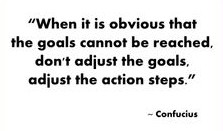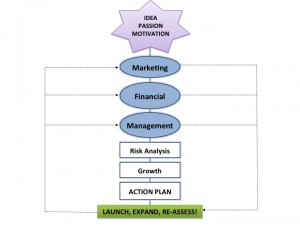Are you ready for your encore?
The traditional idea of retirement is increasingly becoming an old notion—either because people need to keep working as a financial necessity or because they still want to work. Instead of retiring, many people are looking to do something on their own terms, and do work that really matters.

The term “encore career” is being used to describe a new career later in life—one that is focused not just on making a living but on making a difference. Encore.org—a San Francisco non-profit that helps people pursue “second acts for the greater good”—defines encore careers as jobs that combine personal meaning, continued income and social impact in the second half of life. And according to the organization, the idea is catching on. As many as 9 million people ages 44 to 70 are already in encore careers, with 31 million more interested in the idea but not sure how to make the transition.
For many, the encore career most appealing is starting a business. In 2012, nearly one quarter of all new businesses were started by people ages 55 to 64. According to the Ewing Marion Kauffman Foundation, business creation by older Americans grew more than 60% between 1996 and 2012.
So if you are interested in starting your own business as an encore career, where do you begin?
1. Follow your passion! Your business will only succeed if you love what you do. As Steve Jobs says, “The only way to be truly satisfied is to do what you believe is great work. And the only way to do great work is to love what you do.”
2. Know yourself well. Assess your strengths and weaknesses to determine if you have what it takes. Do you have some of the traits common to successful entrepreneurs? What are your existing skills? Older entrepreneurs have an advantage — at this point you probably have a good sense of what you love to do and what you can do well. Now, instead of doing that work for an employer, you can do it for yourself.
3. Get out there to connect and learn. There is so much to learn from others in the field. Read, take classes, join small business groups of like-minded people, find organizations focused on the issues you are passionate about, as well as organizations focused on senior entrepreneurs. Starting a business can be a risky endeavor but much less so when you have relevant skills, a sense of the marketplace, and an understanding of what others have tried already and what has succeeded or failed.
4. Don’t do it alone. Starting a new business can be a significant undertaking. You need a strong network to help you navigate through the rough patches and mentors who will share sound guidance. It is important to surround yourself with supportive and insightful people. As someone with life and career experience, there is a good chance you have a strong network of contacts already — people you can turn to as a support system and people who might eventually be customers or clients.
5. Use all the business tools you can find. There are many non-profit organizations and government agencies committed to helping people start their own small businesses. In San Francisco, the Office of Small Business is a great resource and there is a San Francisco Business Portal for finding all the licenses and permits you’ll need. Check out our website for more resources.
6. Money, money, money. There are many small and home-based businesses that can be launched without much start-up capital. No matter your size, knowing the resources you have and projecting what you may be able to earn is critical. How much do you need to make each month to cover expenses and make a profit? What are your start-up costs and how will you fund your transition? There are many ways to fund your business, with crowdfunding platforms becoming an increasingly popular strategy.
7. Make a plan! Your plan doesn’t need to be lengthy but it’s helpful to give some thought to marketing, money and management before you begin. A business plan can force you to clarify your idea, understand the external conditions that might affect your business, and set realistic goals with benchmarks to track your progress. Doing the research, talking to people and creating realistic financial projections will give you confidence to get your business started and keep it going. Renaissance Entrepreneurship Center offers a 12-week Business Planning Class to help you through the process.
Above all, what’s most important is to get out there and keep learning. Starting a small business is tough but it can be so rewarding both for the people you serve and the person you become. You are never too old to learn something new and make a difference.







